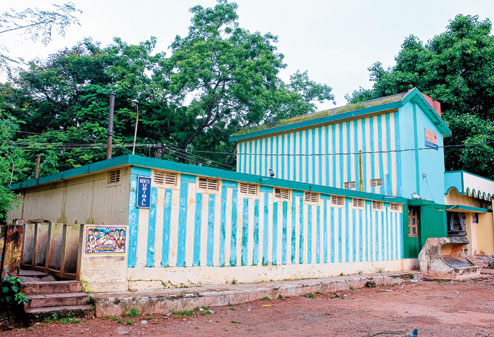
Picture by Ashwinee Pati
Bhubaneswar, Aug 12: After doubling the number of existing public toilet facilities in the city, the municipal corporation has now shifted its focus on achieving a similar feat in the ongoing community toilet project here.
In a bid to achieve the target, the Bhubaneswar Municipal Corporation has decided to form ward-level sanitation teams and go ahead with the project.
It has also fixed a target to complete work on 26 community toilets undertaken as part of Project Samman, an urban sanitation initiative that aims to reduce open defecation in the city.
"We believe in progress through partnership. Our executing partner under Project Samman has almost finished work on 17 of the 26 toilets. We have to think about the operation and management of the toilets. As a result, we have come up with an idea to form committees and entrust them with the job," said mayor Ananta Narayan Jena.
According to the new initiative, the sanitation committees will look after the day-to-day monitoring and functioning of the toilets in various areas. The civic body has formed six such committees with three members each for six municipal wards. The committees on Thursday got the keys to six such toilets in the six wards.
"The six committees will look after the completed toilet complexes at Gadakana Sabar Sahi, Patia Tala Upara Bhoi Sahi, Ishaneswar Basti, Sion Sramik Basti, Tuhikutu and Saradapali communities. In the next phases, we will form more such teams to look after the operation of 20 other community toilets in the city," said the Bhubaneswar Municipal Corporation's deputy commissioner Srimanta Mishra.
According to the plan chalked out by the municipal corporation, the teams will collect user charges from residents and retain the revenue for its operation and management. Sources said the charges would be between Rs 3 and Rs 5. The community toilets are meant mainly for slum-dwellers in the city who are otherwise deprived of quality sanitation services.
The civic body officials will also conduct financial audits of the facilities on a monthly basis to check for any irregularities.











